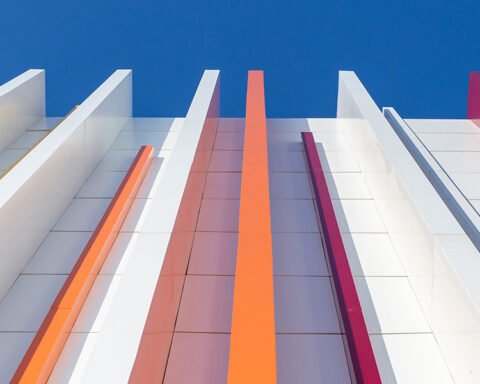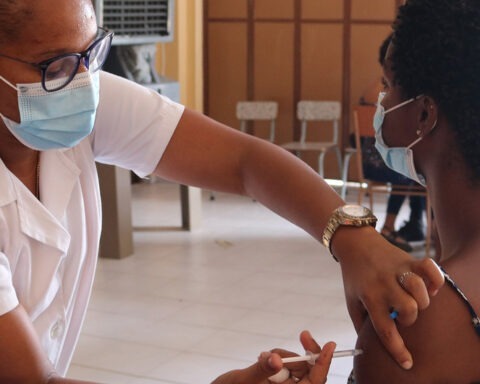According to the Ecuadorian government, approximately 360,868 Venezuelan nationals have settled in Ecuador, and nearly half of this population resides in Quito, the country’s capital city which concentrates the greatest number of work opportunities. But the economic crisis and COVID-19 are having devastating effects on Quito’s residents. Since December 2019, unemployment in Ecuador skyrocketed from 3.8 per cent to 13.3 per cent in just six months. Yet these figures become alarming when referring to the Venezuelan population residing in the country – as of August 2020, 65 per cent of Venezuelans remain out of work (according to Ecuador’s Ministry of Government).
This demonstrates the urgent need to design and implement initiatives and programs that generate sustainable livelihoods for both migrants and their neighbors in the communities in which they live. These actions will harness the significant benefits that migrants bring to their new communities, by utilizing their skills and resources to strengthen the labour force, increase community investment, advance cultural diversity and overall contribute to the achievement of the Sustainable Development Goals (SDGs).
To this end, IOM Ecuador aims to generate sustainable livelihoods for Venezuelan migrants and members of the host community through the “Strengthening Livelihoods Phase I and II” programme. The programme includes training on entrepreneurship and technical skills which is reinforced by support to develop soft skills aimed at improving social cohesion and bringing neighborhoods together.
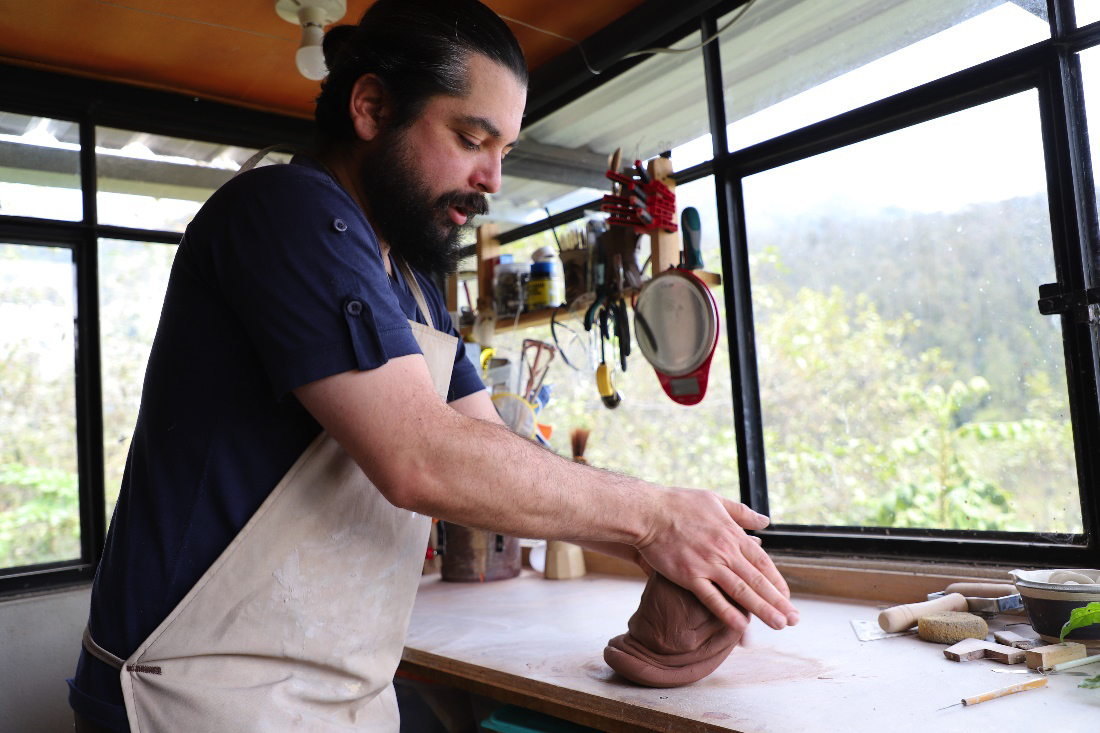
“My dream was to live off my passion, which is arts and ceramics. I will never get tired of doing this because it’s something that teaches you many things, such as patience. As a living material, you need to learn how to work it.” Photo: IOM/ Paula Vásquez
Alejandro has built his business Zabbres with the support of this programme. He is one of 200 beneficiaries who have gained better tools for income generation so that they can contribute to the sustainable development of their host communities. Seed capital has been granted to selected business ideas in order to help them grow into sustainable, inclusive and promising investments. These businesses in turn revitalize Quito’s economy and accelerate action towards the achievement of SDG 8: Promote sustained, inclusive and sustainable economic growth, full and productive employment and decent work for all.
With the seed funds he earned for his Zabbres project, Alejandro invested in tools for his workshop. He will build all the furniture himself and is waiting for the pandemic’s restrictions to ease, so that he can teach ceramics classes and have a proper venue to showcase his products.
Today, Alejandro opens his home to us, a space that he shares with five other Venezuelan families in south-central Quito. After several corridors, we arrived at his workshop, a small space with a beautiful view of Quito’s northernmost neighborhoods.
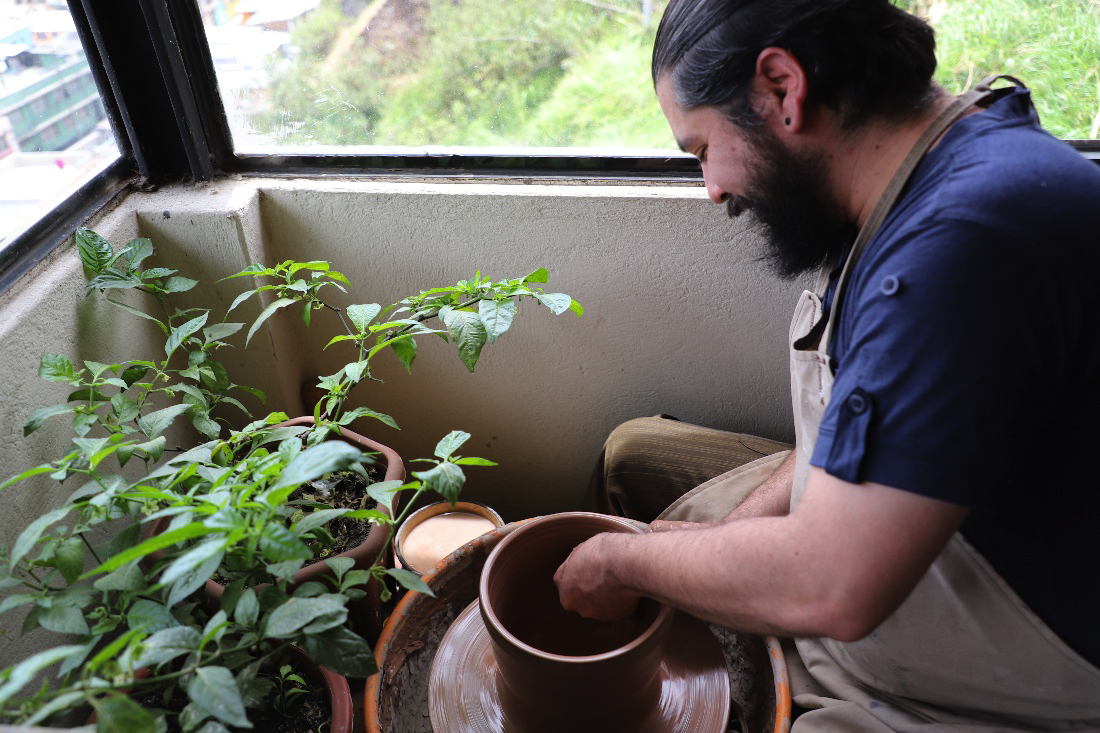
Alejandro has planted a sweet chili plant at his home, which is an indispensable ingredient for all Venezuelan dishes, bringing a taste of home to his new studio. Photo: IOM/ Paula Vásquez
Alejandro arrived in Ecuador approximately three years ago. He traveled first to Bogotá with his friend’s mother and then crossed the border into Ecuador. Without knowing anyone, Alejandro could hardly have imagined that this country would be the place where his first child would be born, where he would find a home and make a family.He had studied art at the University of Caracas, specializing in ceramics. This training allowed him to get a job in a workshop on the outskirts of Quito. Eventually he managed to bring his own lathe (a tool for making ceramics) – it arrived in parts, each one brought by friends who came to Ecuador. With it, he was then able to make cups and coffee pots that he sold in different places in the city. When Alejandro heard about the IOM and FUDELA course “Strengthening Livelihoods”, he knew it was the perfect opportunity to build his business as an entrepreneur.
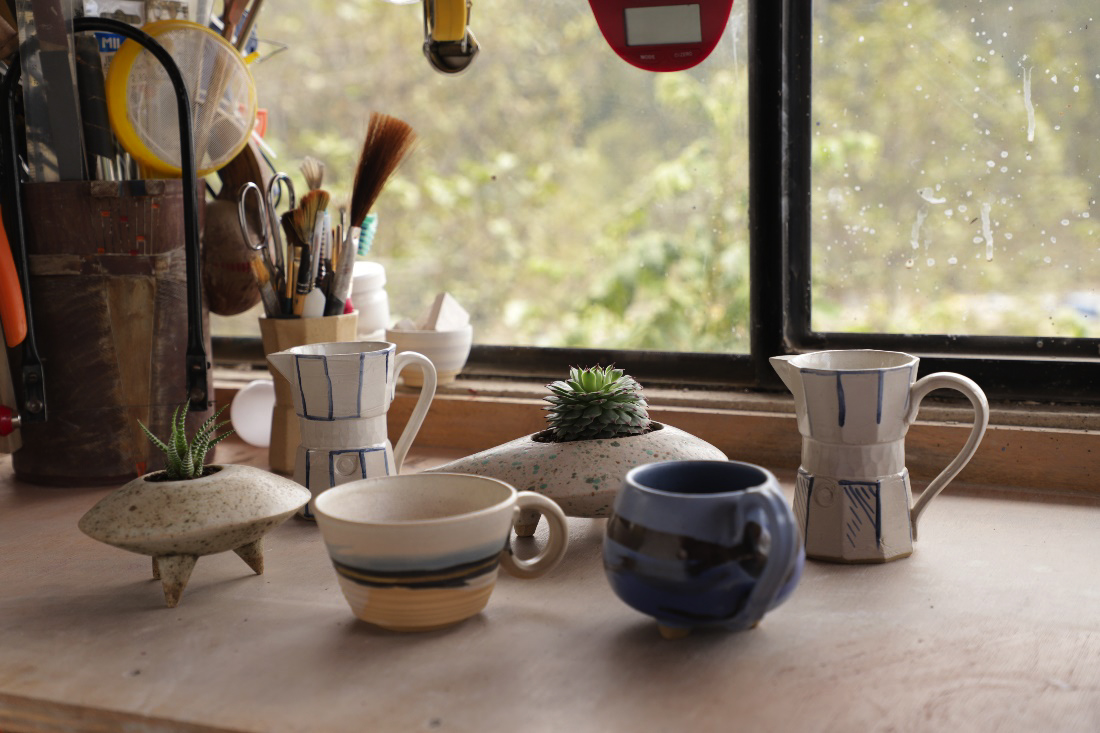
The skills that were provided to Alejandro by the “Strengthening Livelihoods Programme” allowed him to understand how legal, administrative and financial requirements work to start a business in Ecuador. Photo: IOM/ Paula Vásquez
To Alejandro, this project “was an incentive to continue, because (starting all over again) was very difficult, arriving in a country where you don’t know anyone is difficult. This project has helped me stay on my feet and keep my dream alive of continuing with my workshop and what I like to do. It came at the right time; I needed the support to be told ‘this can be done’ and to continue. The workshop helped me to understand a lot about how a project should be managed financially. It helped me to structure my project better so that now I see it more clearly. I see a future for it”.

Zabbres promotes itself on social media and through networks of migrants and neighbors in his community. Photo: IOM/ Paula Vásquez
Stories of migrants and refugees like Alejandro are frequent. Their resilience and commitment to contribute in meaningful ways to their communities represent an important contribution to Ecuador’s sustainable development, accelerating action towards achieving the SDGs during this Decade of Action. As shown in Ecuador’s 2020 Voluntary National Review (VNR), a process which takes stock of Ecuador’s progress towards the SDGs, the country is committed to implementing actions that maximize the development potential of migrants to realize the 17 SDGs. IOM works with local governments in Ecuador to make sure that people like Alejandro continue to benefit from these kinds of programmes. By ensuring that projects are owned by local leaders and feed into government policies and programmes, including COVID-19 socio-economic response plans, the benefits will continue to grow even after these projects end. For example, the Global Programme on Making Migration Work for Sustainable Development (implemented in 11 countries in partnership between IOM and UNDP and funded by the Swiss Development Cooperation) is working hand in hand with the national government, local authorities, civil society, the private sector and diaspora and migrant organizations in Manta and Santo Domingo de los Tsáchilas to ensure that migration is an integral aspect of all plans and policies. In Ecuador, IOM is also supporting efforts to integrate migration into urban development planning as well as broader service provision for migrants, such as employment, through the Mainstreaming Migration into International Cooperation and Development project (MMICD), carried out by IOM and funded by the EU (DG DEVCO).
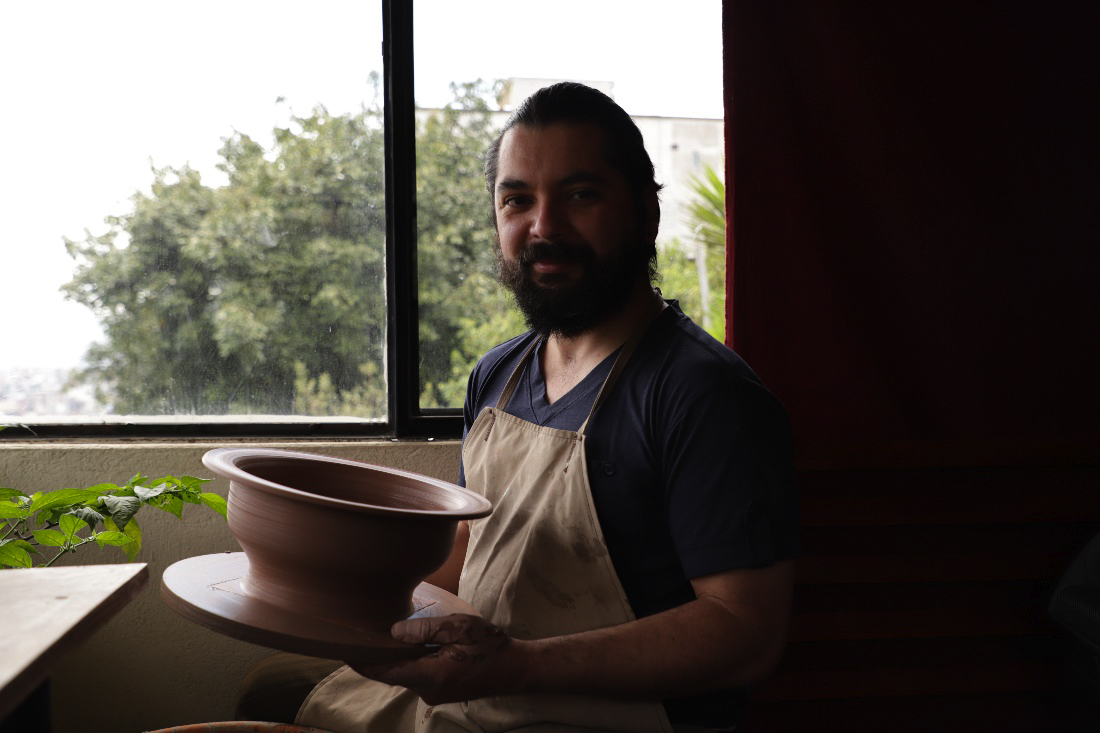
One of IOM´s main objectives in 2020 is to strengthen social and economic inclusion of Venezuelan migrants in the country. Photo: IOM/ Paula Vásquez
Social and economic inclusion of migrants can be achieved through the promotion of development-oriented policies that support productive activities, decent job creation, entrepreneurship, creativity and innovation, and encourage formalization and growth of micro-, small- and medium-sized enterprises as established in SDG Target 8.3. At a time when the COVID-19 pandemic has pushed back hard-won development gains, it is now more important than ever to establish programmes like “Strengthening Livelihoods.” Supporting migrant entrepreneurs to utilize their skills, establish businesses and work with members of their communities is one concrete way to get us back on track to achieving the SDGs, so that we can “recover better” for more equal and sustainable communities.



